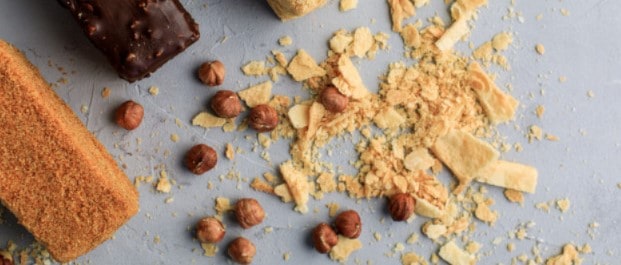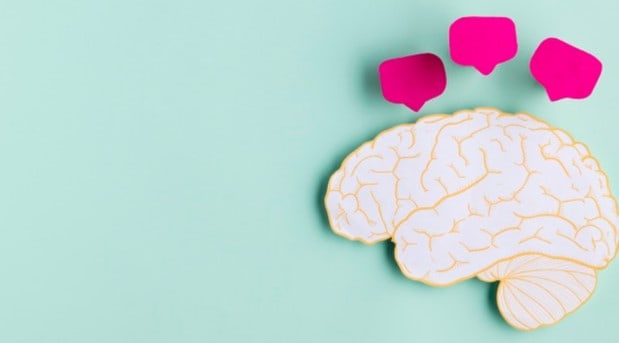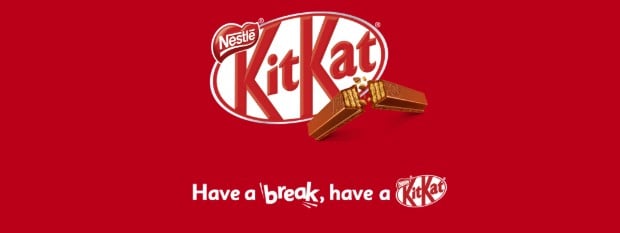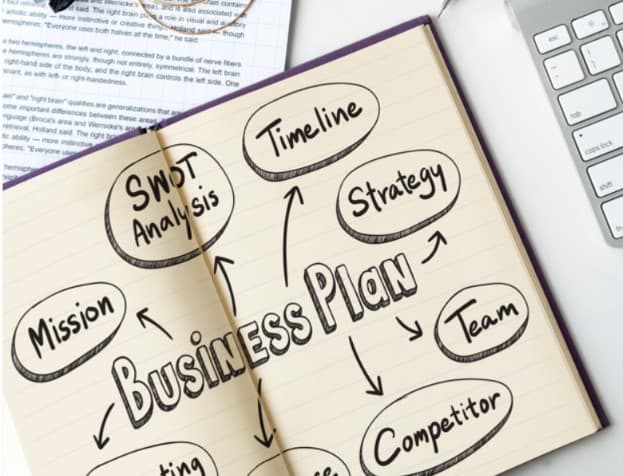23 Science-Based Study Techniques & Tips to Study More Effectively in 2023
Do you know what’s harder than studying effectively?
Getting started.
Believe it or not, even geniuses and the smartest person in the room will feel intimidated just thinking about the amount of work needed to prepare for an exam. It’s so easy to feel unmotivated.
When you anticipate the number of pages you have to read in a day or think of the boring lessons you have to study through, it’s understandable to dread opening your textbook.
This doesn’t make you a failure. You’re simply having a hard time getting past the worries. If that’s the case, here are 23 study tips you can use to jump-start this journey.
By the end of this article, I hope you’ll learn how to study for a test effectively and efficiently rather than try to simply memorize stuff.
Best Study Tips to Get You in a Study Mood
1. Assess Yourself First
The best way to study for a test isn’t founded on pure strategy and technique alone.
If you want to learn how to remember things better for a test or how to ace an exam with efficiency, self-reflection is your guide to getting out of the dark tunnel.
Understanding what distracts you or holds you back will help you identify which tips on studying benefit you the most.
Ask yourself these questions:
- Does this topic bore me?
- Am I looking for the “right” or “perfect” moment to start?
- Is doing this right now overwhelming for me?
- Do I feel like this exam or assignment is beyond my abilities?
Once you understand and identify your needs, you can stop procrastinating and start studying.
2. Organize Your Study Load
To stay on track, create a study schedule you can stick to.
Plan your study routine using a calendar, journal, or a planner. We recommend using MyStudyLife (1), an online planner that you can use across different platforms and get reminders for certain events you set.
Organizing your routine will help you turn it into a habit which, in time, you’ll find yourself feeling less resistant to studying effectively.
3. Minimize Distractions
A time-tested and proven fact that will help you to study for a test the best way possible is to minimize distractions. There’s a lot of chatter that goes on inside your brain. Add to this the many temptations around you–TV, video games, friends, social media, etc., your study flow can easily go down the drain.
So, before you sit down and open a book:
- Turn off your Wi-Fi
- Turn on soothing music if that’s how you roll
- Tell others you need some peace and quiet
- Find a quiet spot for you to study without any distraction
- Make sure your study area is comfortable and conducive for extended periods of studying
4. Create Space Conducive to Studying
As previously mentioned, this will help you study better and be in the mood to do the work. Your study space is exclusive to studying that every time you step inside it, you switch on the appropriate mode.
Try going outdoors and switch up the environment like a coffee shop. You can even customize your desk or workspace using a minimalist theme or whatever works best for you.
Studying in a conducive atmosphere can improve your concentration and interest to learn. Here is a video of using a productive space to help discover how to do better on tests:
5. Ask Yourself Why
No matter how great the study tips we offer, they won’t be of use if you don’t know why you’re doing what you’re doing, to begin with.
When you know the reason/s to why you’re doing what you do, you stop making excuses. Here are a few reasons why you’re going through all the trouble:
- I want to get into a top-notch school
- I want to land a great and meaningful career
- I want to make my parents proud
- I want to get a job where I can earn well and provide for my family
When you know why it won’t be just about reading a textbook anymore. It’s about building your desired future and the person you want to be.
Best Study Tips to Keep Your Study Flow Consistent
6. Break Your Study Material into Smaller Chunks
Could you stuff a whole pizza down your throat without the possibility of choking yourself? Probably not. You’d have to slice it down to bite-sized pieces. In the same sense, you will be able to digest different study materials if you consume them in small sections or bit by bit.
Don’t overload your brain. This can result in you forgetting what you just read. In effect, you lose focus, and it becomes harder to understand what you read. So, don’t try to read the whole 100 pages at one sitting. Break it down to 3 pages at a time or per chapter. The goal is to allow what you’ve read to sink in before you jump to the next one.
Good study tips like this will help you manage your anxiety in the face of an overwhelming topic. Instead, they look like short laps and become manageable along the way.
7. Use Creativity In Your Notes
Having a hard time getting through a boring topic? That’s where creative studying tips come into play. One of the best tips on how to remember things for a test or how to memorize stuff for a test involves tweaking the colorful world inside your brain.
Study tips like these can help you turn a boring subject into an interesting one. Here are some study tricks to stimulate creativity:
- Use visual aids to improve memory retention and understanding
- Find real-world applications of the concept or its relevance to society
- Read case studies that explain it in a better context
- Discuss the lesson with your friends through a forum
8. Use Mnemonics
Using Mnemonics is a great tip on how to study lessons that require memorization. The learning technique aids in information retention in your memory and easy retrieval should you need to remember what you just read or learned. It uses retrieval cues, elaborative coding, and other forms of imagery to encode and decode any given information. This makes it an effective solution on how to remember things for tests.
The Mnemonic H.O.M.E.S., for example, helps you remember all 5 great lakes in the United States easily. Each letter stands for Huron, Ontario, Michigan, Erie, and Superior.
There is an app (2) that provides access to a ton of Mnemonics.
So, how do you use this strategy to help you memorize for a test the day before?
- Use the first letter of the word and write it down
- Follow this process for all words or items
- Write a sentence about it (The sentence doesn’t have to make sense.)
- Rinse and repeat for all other items
9. Write Down What You Read
Studies in neuroscience have shown that writing down your goals helps you achieve them with more success. The process of writing down the information you read allows your brain to experience a phenomenon called: encoding.
This is a biological process where the brain decides which information gets stored in our long-term memory. Writing improves the encoding process, so writing improves your chances of remembering what you read.
If you’re looking for a study tip on how to study a lot of information, writing it down can help you significantly.
10. Recite the sentence out loud
You might think this sounds a little farfetched, but it’s actually effective in helping you retain what you read better. Reciting it in your head compared to saying out loud can make a difference.
Just like how writing down what you read helps store information more in your long-term memory, reciting a sentence out loud has the same effect.
11. Do a Group Study Session
Group studies aren’t for everyone but, for others, they’re one of the best ways to study for a test.
Collaborating with friends and colleagues can help you understand not just the lessons you’ve read but also the context, which by far is more essential. Sharing information with a colleague helps you process information better. For some, group sessions motivate others to study.
12. “Space Out” Your Study Routine
Another term for this is distributed practice. “Spacing out” is studying for shorter periods of time or in shorter bursts rather than spending 6 hours straight reading your textbook.
You can spend 30-40 minutes on a topic two or three times a day to keep yourself from feeling burned out. This way, you create an efficient flow in your study routine and retain more in the long-term.
Remember the best way to study for a test is not about spending more hours reading, it’s how you use your time that leads to an effective study plan.
Self-Care Study Tips
13. Treat Yourself
Reward yourself for every day that you complete a study session. You’ve put in the hard work. You deserve a treat or two.
So grab a drink, eat that cake you’ve been craving, relax and watch a movie, or go out with friends. Just make sure you don’t lose sight of the prize–to ace the exam. Have fun but stay in control.
14. Juice Up & Eat Brainy Foods
Grabbing a drink in the middle of a study session can improve your alertness and focus. Something like coffee or tea has sufficient doses of caffeine to help you stay alert and attentive.
You may also want to eat brainy foods to keep your energy levels at its best:
- Oatmeal
- Tuna
- Mackerel
- Salmon
- Eggs
- Broccoli
- Strawberries
- Blackberries
- Blueberries
- Nuts
- Almonds
- Cabbage
- Whole grain bread
15. Take a Break
You don’t need to always reach for a KitKat when you do, but make sure to put breaks in between studying. Don’t overwork your brain to the point that it can’t retain any information. When you feel overwhelmed, take a pause. Give your brain time to recharge, so you can study the next day or the next lesson with a fresh mind.
16. Exercise
You should know by now the many benefits regular exercise provides. In this case, exercising for even 30 minutes in the day can improve your mental capacity. This will help you concentrate more and, overall, feel sharper. Exercise regularly to improve the processing speed of your brain and help you study effectively every day.
17. Go for a Power Nap
It’s common to overlook sleep. This is especially true during major exams. A lot of people sacrifice sleep so they can study more but this can easily backfire. Can you imagine sleeping during the actual test because you burned the midnight oil prior?
Your brain can only process so much information in a day before it crashes. A bit of sleep can re-energize it. In fact, a 20 to 30-minute nap should give you enough brainpower to last you an extra 2 hours of studying.
18. Set Aside Time for Extracurricular Activities
In-between study sessions, stimulate your creativity, dance, sing, or even paint. Use music to help you de-stress. Even better, create a custom playlist for every subject and let the jam flow.
If you have activities lined up during the weekend, do them. Doing so will give your brain a break and put you in an atmosphere less hectic than in a study room. When you get back to reality, you’ll be less stressed.
Study Techniques to Use
19. Explain What You Learned to a Colleague or Friend
Also known as the Feynman technique, this is one of the best studying tips because you can use it to help you understand a lesson on a deeper level. If your friend knows a bit or two, there’ll be a healthy exchange of information going on.
If your friend has no knowledge of the topic or concept and was able to understand after your explanation, this means you understand the concept deeply and sufficiently. Using Feynman’s technique, you study effectively by acting it out in a way of explaining it to others.
20. Use the Leitner System
Essentially, you’ll be using flashcards to gauge whether you understand the concepts you learned. How is this study technique helpful?
Mainly, it’s meant to help you assess your strengths and weaknesses. This can help you reinforce those weaknesses and improve over time. Here’s a video showing how the Leitner system works:
21. Mindmapping Technique
For visual learners, this counts as the best way to study for a test.
How it works is arranging concepts through a visual diagram showing how every point relates to the main concept. Mindmapping improves reading comprehension, stimulates your creativity, and you can use it for brainstorming, problem-solving, or gain a clearer insight into a complex concept.
Creating a mind map (3) can be as simple as using a pen and paper.
22. Retrieval Practice
Remember that test you studied so hard for last semester? How much of it do you remember now?
Retrieval practice is the study technique where you deliberately try to recall what you learned. If you try to recall the answer to a biology question rather than look up the answer in your textbook, this process improves your learning experience.
23. Practice Visualization
Visualization is a mental technique so much as it is a study technique. When you visualize succeeding in your study goals or studying effectively, this mindset brings you closer to getting what you want.
It works because your brain interprets the mental image in your brain as equivalent to reality. Your brain can’t actually tell the difference between what’s real and what you imagine in your head. It’s like viewing a glimpse of the future you want to see in your head.
Through this mindset, you feel empowered and motivated to pursue the activities that will bring you closer to that preferred future.
Frequently Asked Questions
Focus on the process, not the end goal
Goals are important; however, achievements don’t define your abilities or the kind of person that you are. What defines you are the steps you take every day to reach your goals.
Remember that goals are desired ends, and they only reflect the results of the work you do. Studying effectively carries the process of learning to discipline yourself and learn more about your abilities and capabilities.
Ultimately, when you focus on the process of growing and improving yourself, you won’t just learn how to study effectively. You’ll also learn how to apply this effect to other areas of your life. Your journey to studying effectively isn’t the end. It’s just the beginning of much more to come.
Rather than constantly looking for the finish line, immerse yourself into a road that allows you to continuously become better every day.
References
- https://www.mystudylife.com/
- https://play.google.com/store/apps/details?id=de.patrick_herrler.mnemonics
- https://www.mindmapping.com/


















